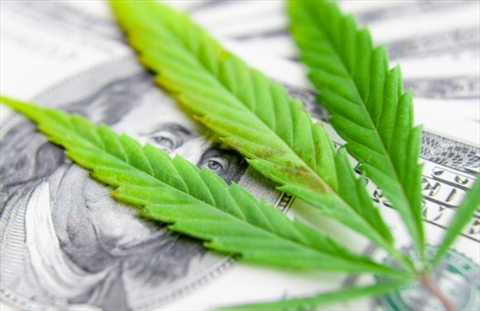
Delaware Governor Without his name, John Carney said on Friday that he will permit bills to become legislation allowing adults to use marijuana recreationally and to establish a state-licensed and regulated cannabis industry.
A change from last year, when he vetoed a legislation bill supported by other Democrats, is the Democratic governors' decision. House Democrats attempted to reverse this with a veto but were unsuccessful.
Just last month, Carney's's work reported that he was still very worried about the unexpected effects of making marijuana legal for recreational use, such as how it would affect children and increase traffic safety.
I want it to be obvious that I still hold the same opinions about this matter. And I am aware that some people who hold my opinions may find it disappointing that I did not reject this policy, Carney said in a Friday prepared statement. I made this choice because, in my opinion, we have devoted far too much effort to this problem when Delawareans are constantly dealing with more urgent and dangerous issues. It's's time to continue.
Carney continued," I'm'm still worried about the effects of a marijuana recreational industry in our state. I'm'm especially worried about the potential negative influences a legal marijuana industry will have on Delaware's's children, the security of our roads, and the poorest districts. Because of these worries, I was unable to sign House Bills 1 or 2.
According to the decriminalization expenses, people who are 21 and older may have up to 1 gram( 28 grams ) of foliage marijuana, 12 grams of marijuana that has been concentrated, or marijuana products that contain as much as 750 milligrams of the psychoactive compound THC. More than an gram of marijuana possession and demand in public are still crimes. Additionally, the act forbids individuals from cultivating their own cannabis for particular use.
State officials are required by the unique industry-creation bill to grant up to 30 initial retail, 30 manufacturing, 60 cultivation, and 5 testing licenses for marijuana. Special permit pools are available to candidates for microbusinesses and social equity.
Both measures' principal sponsor, Rep. Ed Osienski, announced that the legislation proposal would take effect on Sunday. On Thursday, the economy authorization bill will formally take effect.
Osienski, a Newark Democrat, expressed his gratitude that Delaware has joined the growing number of states that have legalized and regulated child recreational cannabis for personal use after five years of endless discussions, debates, discussions, and meetings.
I recognize the governor's's personal opposition to legislation, so I appreciate him paying attention to the hundreds of locals who are in favor of it and approving its passage, he continued.
The legislation bill was approved by the Democrat-led House on a 28-13 vote last month, and the Senate under its control voted 16 - 4 in favor of it. By a vote of 27 to 13 in the House and 15 to 5, the economy bill was approved. Due to the new tax it imposes— a 15 % levy on retail sales— the industry bill required a three-fifths supermajority.
Additionally, reject surpasses call for three-fifths of the vote in both halls, or 25 in the House and 13 in Senate.
Democrats in Delaware have worked for years to make adult recreational cannabis used legal. The cannabis bills are basically the same as the legislation that was discussed last year, but the vote of five progressive Democrats in November helped boost support for the legislation bill and give it the necessary supermajority. Additionally, it probably would have increased the likelihood of Carney overriding any filibusters.
Despite the fact that three Republican House members voted in favor of the legislation proposal and two for the industry bill, GOP lawmakers have largely united in their opposition to it. The business bill passed on a flat party-line vote in the Senate, while the legislation act received one GOP voting.
The creation of a state cannabis industry and its legislation, according to opponents, will increase marijuana use among teenagers and young adults, which could affect their mental development, put business owners at risk, and increase traffic fatalities and injuries. Additionally, they claim that it won't do much to stop illegal business.
According to followers, neither act may alter the laws governing driving while intoxicated and marijuana use in public would be outlawed. Additionally, they claim that employers will be able to screen employees for cannabis use and control them for being intoxicated at work. Additionally, proponents contend that a state-regulated industry may boost tax revenue, reduce illicit black market sales, and create jobs.
To day, 21 additional states have passed legislation allowing parents to use marijuana for recreational purposes.
2023 Rights The Associated Press All right are reserved. Without consent, this content may not be released, broadcast, revised, or redistributed.




